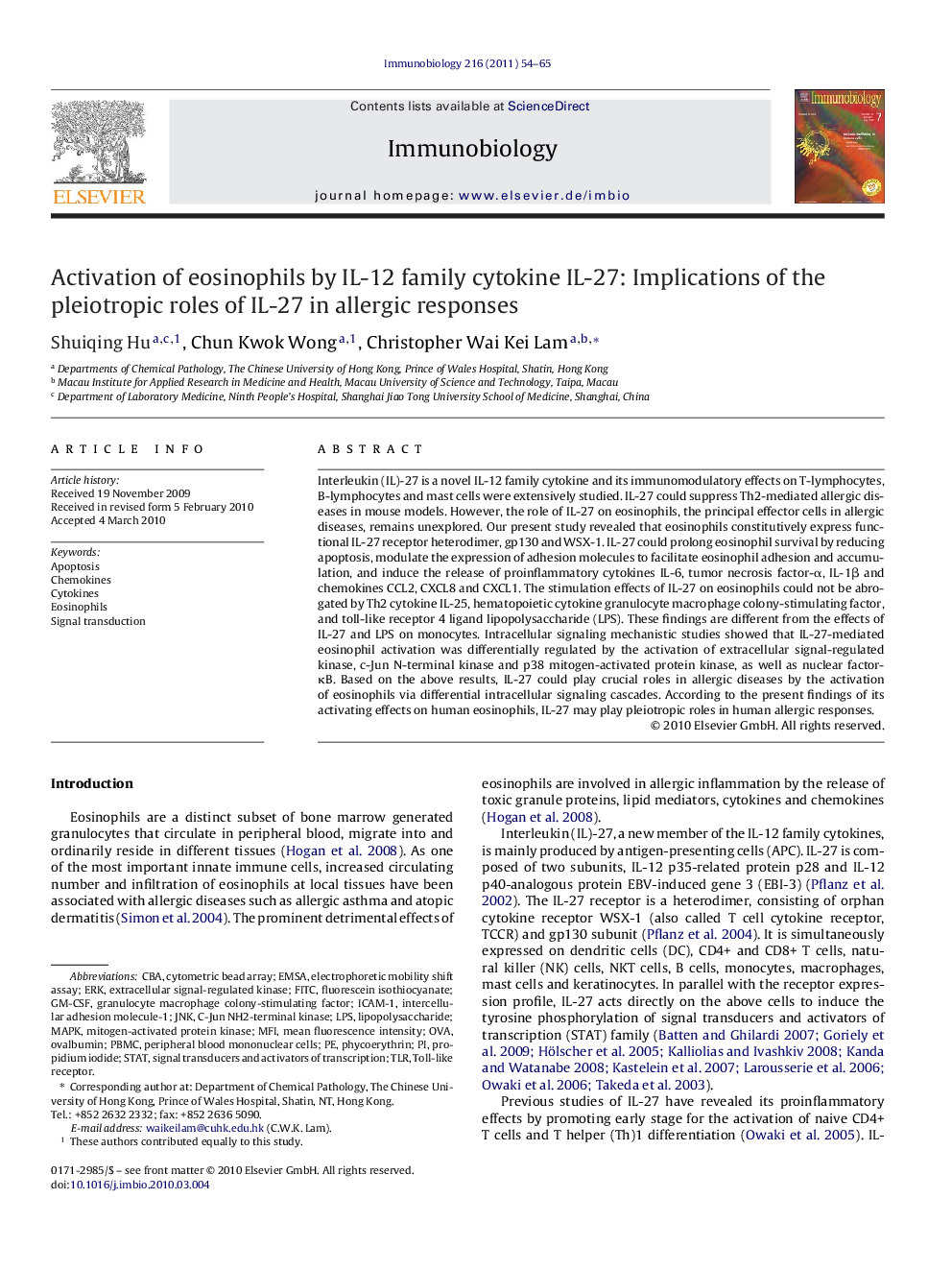| Article ID | Journal | Published Year | Pages | File Type |
|---|---|---|---|---|
| 2183545 | Immunobiology | 2011 | 12 Pages |
Interleukin (IL)-27 is a novel IL-12 family cytokine and its immunomodulatory effects on T-lymphocytes, B-lymphocytes and mast cells were extensively studied. IL-27 could suppress Th2-mediated allergic diseases in mouse models. However, the role of IL-27 on eosinophils, the principal effector cells in allergic diseases, remains unexplored. Our present study revealed that eosinophils constitutively express functional IL-27 receptor heterodimer, gp130 and WSX-1. IL-27 could prolong eosinophil survival by reducing apoptosis, modulate the expression of adhesion molecules to facilitate eosinophil adhesion and accumulation, and induce the release of proinflammatory cytokines IL-6, tumor necrosis factor-α, IL-1β and chemokines CCL2, CXCL8 and CXCL1. The stimulation effects of IL-27 on eosinophils could not be abrogated by Th2 cytokine IL-25, hematopoietic cytokine granulocyte macrophage colony-stimulating factor, and toll-like receptor 4 ligand lipopolysaccharide (LPS). These findings are different from the effects of IL-27 and LPS on monocytes. Intracellular signaling mechanistic studies showed that IL-27-mediated eosinophil activation was differentially regulated by the activation of extracellular signal-regulated kinase, c-Jun N-terminal kinase and p38 mitogen-activated protein kinase, as well as nuclear factor-κB. Based on the above results, IL-27 could play crucial roles in allergic diseases by the activation of eosinophils via differential intracellular signaling cascades. According to the present findings of its activating effects on human eosinophils, IL-27 may play pleiotropic roles in human allergic responses.
